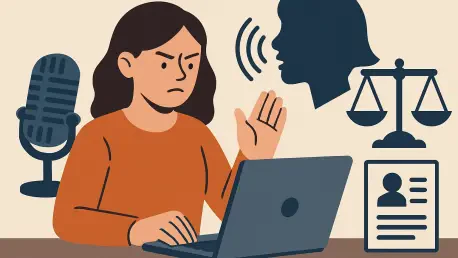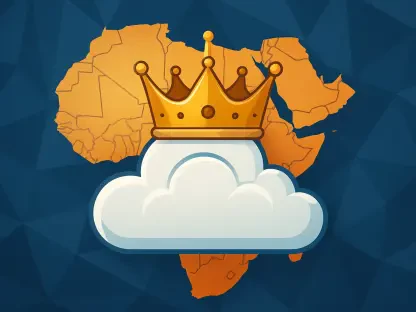In the rapidly evolving landscape of artificial intelligence, a heated debate has emerged in Australia over the ethical and professional implications of using copyrighted material to train AI models, sparking significant concern among creative professionals. The Australian Association of Voice Actors (AAVA) has taken a firm stand against a proposed text and data mining (TDM) exception to the Copyright Act, as suggested by the Productivity Commission in their interim report on harnessing digital technology. This exception would permit companies to utilize copyrighted content, including biometric data such as voices and images, for AI development without explicit consent from the creators. The AAVA contends that this policy poses a severe threat to the livelihoods of voice actors and other creative professionals. Beyond the immediate impact on individuals, the proposal raises broader concerns about identity protection, intellectual property rights, and the balance between technological advancement and personal security in the digital age.
Ethical Concerns in Creative Industries
The core of the AAVA’s opposition lies in the potential erosion of rights for creative professionals across various fields. Voice actors, journalists, singers, dancers, and presenters could see their unique talents replicated by AI systems trained on their work without permission or compensation. This unauthorized use, if retroactively legalized by the TDM exception, would place an unfair burden on individuals to challenge multinational tech giants in costly legal battles. AAVA President Simon Kennedy has highlighted the stark power imbalance, noting that corporations with vast resources could exploit artists’ intellectual property while leaving them with little recourse. The risk is not merely financial but deeply personal, as the lack of safeguards for biometric data heightens the danger of deepfakes and voice clones. Such technologies have already begun disrupting job opportunities in the voice acting community, with AI-generated content mimicking human performers and undercutting their earning potential in an increasingly competitive market.
Moreover, the ethical implications extend to the very foundation of artistic identity. For many creatives, their voice or likeness is not just a tool but a core part of their personal and professional brand. Allowing companies to mine this data without consent strikes at the heart of individual autonomy, effectively commodifying unique human traits for corporate gain. The AAVA argues that this practice undermines the value of original work and deprioritizes the human element in creative industries. Without clear regulations or an opt-in model where explicit permission is required, the proposed exception could set a dangerous precedent for how intellectual property is treated in the digital era. The association’s call for fair compensation and licensing structures reflects a desire to maintain a balance where innovation does not come at the expense of personal rights, ensuring that creators are not sidelined by the rapid advancements in AI technology.
Broader Societal Implications of AI Data Mining
Beyond the creative sector, the TDM exception raises significant concerns about privacy and consent for all Australians. Major tech companies have expressed interest in using data from everyday citizens, including vulnerable groups like children, to fuel AI development. This unrestricted access to personal information could lead to widespread misuse, with little clarity on how such data would be protected from exploitation. The absence of robust safeguards in the Productivity Commission’s recommendations amplifies fears that personal identities could be compromised without individuals even being aware of it. The AAVA’s advocacy for an opt-in system underscores the need for consent to be a cornerstone of any policy involving data usage, ensuring that people have control over how their information is utilized in AI training processes and beyond.
Additionally, the societal impact of unchecked AI training could reshape public trust in digital systems. If data from private citizens is mined without permission, it risks creating a culture of surveillance where personal boundaries are routinely disregarded for the sake of technological progress. The Productivity Commission’s apparent prioritization of corporate interests over individual rights has drawn sharp criticism from the AAVA, with questions arising about whose “productivity” is truly being served by these policies. The lack of emphasis on protecting jobs, copyright, and personal identity suggests a disconnect between the needs of Australian citizens and the goals of powerful tech entities. By pushing for ethical guidelines and legal protections, the AAVA aims to prevent a future where innovation overshadows the fundamental rights of individuals, advocating for a framework that respects both personal security and professional integrity in equal measure.
Shaping a Balanced Future for AI and Rights
Reflecting on the intense discussions that unfolded, the AAVA’s resistance to the TDM exception highlighted a critical juncture in the intersection of technology and human rights. Their critique of the Productivity Commission’s stance exposed a systemic undervaluation of copyright and personal identity, urging policymakers to reconsider the long-term consequences of unchecked data mining. The association’s insistence on consent-driven models and fair compensation set a precedent for how creative industries could adapt to AI without sacrificing their core values. Their efforts emphasized that technological progress should not come at the cost of individual livelihoods or societal trust.
Looking ahead, the path forward demands a collaborative approach to establish ethical boundaries for AI development. Policymakers need to prioritize comprehensive regulations that protect biometric data and ensure equitable treatment of intellectual property. Engaging with creative communities and privacy advocates could help craft licensing structures that support innovation while safeguarding personal rights. The debate underscores an urgent need for transparency in how data is used, paving the way for solutions that balance corporate ambitions with the fundamental protections every Australian deserves in the digital landscape.









